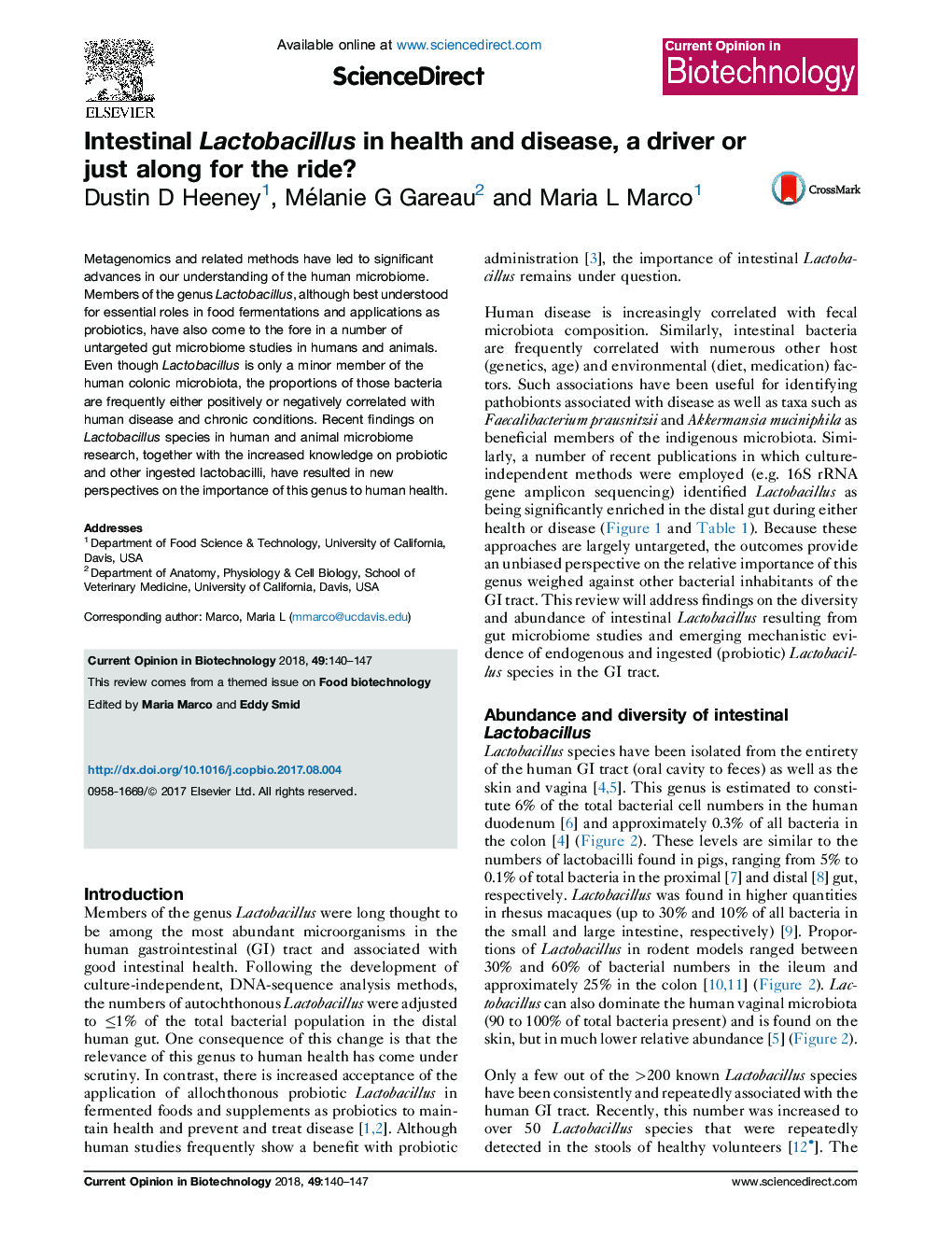| Article ID | Journal | Published Year | Pages | File Type |
|---|---|---|---|---|
| 6451482 | Current Opinion in Biotechnology | 2018 | 8 Pages |
â¢Intestinal lactobacilli are often detected in untargeted gut microbiome studies.â¢Depletion of intestinal Lactobacillus is frequently associated with disease.â¢Probiotics use is supported by findings on indigenous Lactobacillus populations.â¢Tryptophan metabolism is an emerging, beneficial trait of intestinal lactobacilli.
Metagenomics and related methods have led to significant advances in our understanding of the human microbiome. Members of the genus Lactobacillus, although best understood for essential roles in food fermentations and applications as probiotics, have also come to the fore in a number of untargeted gut microbiome studies in humans and animals. Even though Lactobacillus is only a minor member of the human colonic microbiota, the proportions of those bacteria are frequently either positively or negatively correlated with human disease and chronic conditions. Recent findings on Lactobacillus species in human and animal microbiome research, together with the increased knowledge on probiotic and other ingested lactobacilli, have resulted in new perspectives on the importance of this genus to human health.
Graphical abstractAlteration of intestinal Lactobacillus in health and disease. Blue circles indicate Lactobacillus is depleted in disease compared to healthy controls. Red circles indicate Lactobacillus is increased in disease. Gray circles indicate Lactobacillus levels were found to be either increased or decreased with disease, depending on the study. Circles with black edges indicate a benefit for consumption of probiotics for treating disease. CDÂ =Â Crohn's disease, RAÂ =Â rheumatoid arthritis, OBÂ =Â obesity, T2DÂ =Â type 2 diabetes, IBSÂ =Â irritable bowel syndrome, T1DÂ =Â type 1 diabetes, PNSÂ =Â prenatal stress, HIVÂ =Â human immunodeficiency virus, MSÂ =Â multiple sclerosis.
